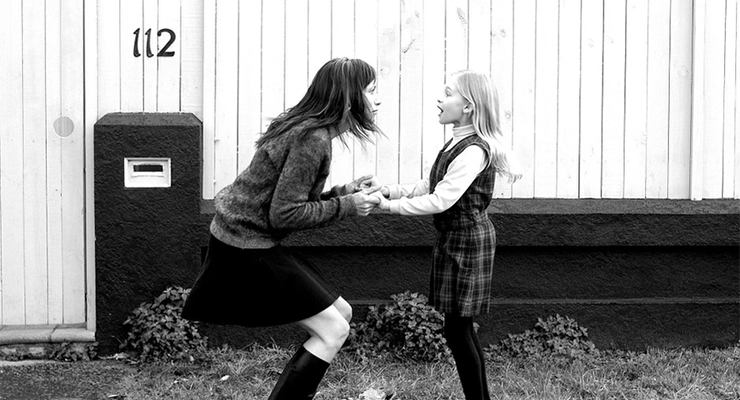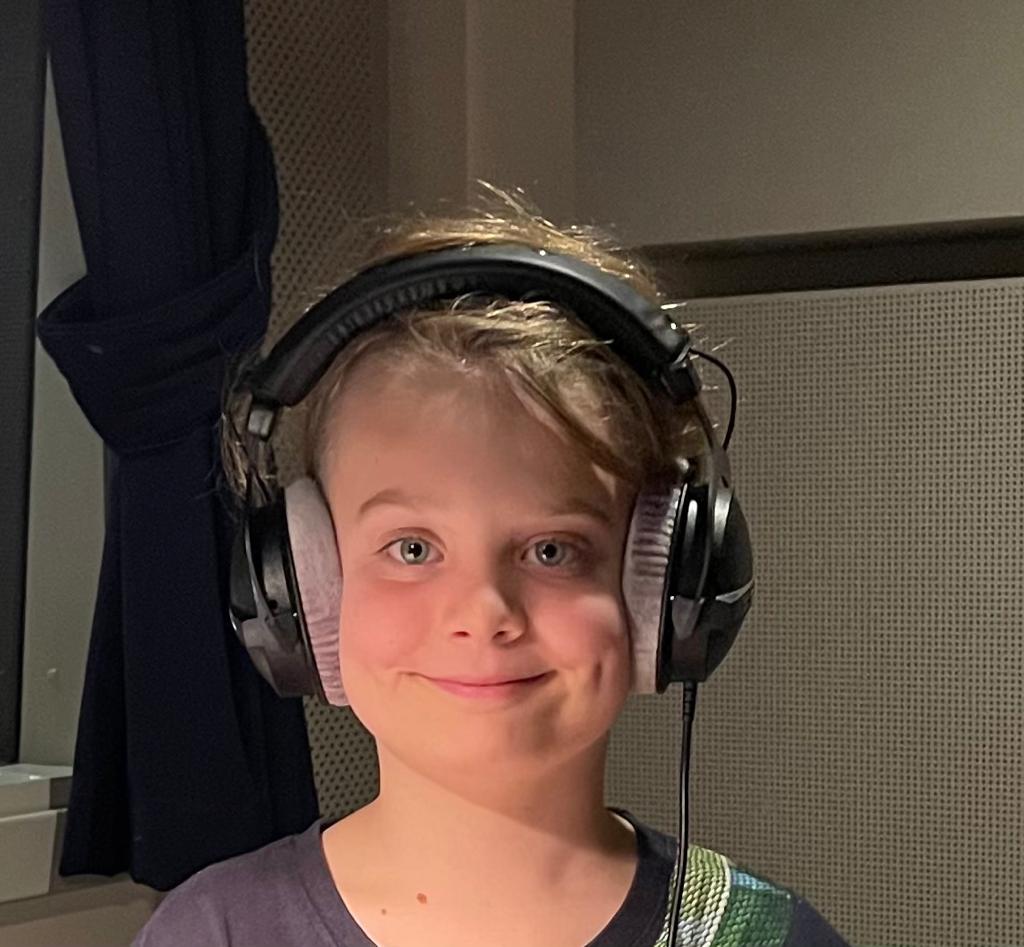
“There was a scene where I had to say ‘bonking’. I had no idea what it meant. I was asking people on set but they wouldn’t tell me,” recounted Alex Cook, a former child actor and now adult working behind the scenes in film.
Cook was eight when she began playing the character Lou on the Australian television drama series Love My Way. Amid the adult themes and expectations, Cook developed a sophisticated vocabulary and a mature approach to money. As a child, she successfully ransacked all of her acting-related remunerations.
“The problem was my parents trusted me. I was persuasive and confident. They’d also never had a child with money, so they had no clue how to handle it,” Cook, now 26, told Crikey.
“Me and mum spoke about it later and she asked if I had any of that money left. I said, ‘No, I’m sorry.’ She said, ‘No, I’m sorry.’ We both agreed to never talk about it again.”
A post-pay cheque spending spree is a rite of passage when you get your first job. But what happens when your income stream starts at the ripe old age of eight? This is the reality for child actors bearing the fruits of an adult industry. Along with perks, children must front the burden of M15+ decision-making and life admin — spend v save, work-life balance, passion or parent project, self-manage or micro-manage — all before graduating to nine-times tables.
Crikey caught up with young actors new and old to paint a picture of the high life as an early entrant.
Kids call the shots
From a young age, Sammy Farina knew she was not a Sporty Spice. Her classmates ran rings, shot hoops and batted balls, while she sounded out how best to get herself on screen.
“When I was 14, I set up a Gmail account and sent my profile to all these agents in the US. What 14-year-old does this?” she said.
Farina, now 21 and working as a paralegal, said it was a masterclass in rejection. Most of her messages bounced back as she came with no referral and an email address — samlovesham@gmail.com — that caught the attention of one too many junk mail departments.
She was a kid in an adult world steering her own showbiz ship. Her parents worked full time, so the research, drive and can-do attitude was all DIY. It eventually paid off (with a spot on the Nickelodeon show Camp Orange), but Farina laments that she was never afforded the experience of “stage mum”.
“You walk into the waiting room for an audition and it’s full of kids all vying for the same role. Then there are the mums schmoozing,” she said. “Stage mums are real.”
Parachute in a parent
As one of few children on set, Cook came equipped with a chaperone — a substitute for parents who “weren’t going to quit their job” to tend to her pre-teen tenacity for TV. In their absence, Cook recalls the odd tantrum, on-set sleep and gastronomical adventure.
“When I was on tour, mum came and visited. She asked me what I’d been eating. I pulled out a pack of pikelets, popped three on a plate, placed one piece of chocolate on each, zapped that in the microwave, and then garnished it with a strawberry,” she told.
“I lived on that.”

For parents who don’t work, can work around work, or are willing to trade in their day job at the expense (literally) of their child, you’ll find them on set.
“You have to ask yourself, am I losing money by being on set because my hours lost are more than my kid makes?” said Gosia Kasprzak, mother of two boys who’ve acted and modelled since they were six months old.
What started out as an opportunity to get some “nice professional photos of my babies” has grown into a biannual gig for 10-year-old Hugo and 11-year-old Nixon. The brothers have an agent, but Kasprzak said many of the roles stem from her self-initiative: “It’s mostly driven by me.”
And what do the boys think? Hugo confirmed it was his brother, not his mother, that he could do without: “I don’t mind having mum there, but I don’t like to be with my brother. He’s annoying. When we’re working, we don’t get into fights, but outside of set, we fight.”
The boys have bickering boundaries (a point of pride for Kasprzak who called her sons “perfect professionals”) and are beginning to develop a drive that matches their mother’s.
Nixon recently landed a line in the soon-to-be-released British historical drama series Ten Pound Poms after a spot of inspired improvisation as an extra. Clad in 1950s suspenders, a shorts suit and a hat, he said it felt fitting to say “G’day”.
The 11-year-old is one step closer to stardom but remains reserved about the prospect of playing a more prominent part: “Yes, it would be fun to have a bigger role. But no, I’d have a big paragraph to remember and if I stumble that would be really hard.”

Anxieties aside, Nixon and Hugo are prepared to stick with the “fun but a bit boring” work if it means coming away with their faces on a bus or being on TV.
And then there’s the money.
“When they were younger, all they cared about were lollies on the day and choosing a toy after a shoot. But when they reached school age, they started to care about how much they earned and where it was going. Occasionally they ask me, ‘Mum, how much is there in the account?’ ” said Kasprzak, who maintains control of the boys’ accounts to ensure their earnings amount to more than a Pokémon card investment.
Financial planning for children
The long hours kitted out in costumes or sitting around on-set may be arduous, but they can come with handsome pay cheques.
Eight-year-old Hal is fresh to the industry and already has a long-term savings plan for his earnings: “I get paid $275. I’m going to take the money, put it in my bank account, and put it towards my wildlife park, which will be 9000 hectares. Australia Zoo is a quarter of a quarter of how big my zoo will be.”
He scored a job as a voice-over artist for an ABC Kids program and is under no illusion that he’ll have to put in the hours to make ends meet: “I will need at least $1000, so I’m just going to have to keep working.”

The ABC’s payroll set-up certainly works in Hal’s favour, with long-term contributions in the form of a nominated super fund part and parcel to the onboarding process. His mother Philippa told Crikey that she was given a form for the Actors Super Fund “in case Hal doesn’t have a super fund yet”.
“The super contribution should be about $3,” she said.
Hal was mildly concerned that his mother wasn’t taking his work seriously enough: “We were there to work, but my mum asked for their autographs and a photo. She was there the whole time but wasn’t helping me out.”
That said, he was mollified by the structural set-up of the ABC studios — less tower-like than he had hoped for, but a “surprising amount of dark hallways” — and the complementary snacks: popcorn, pretzels and “really nice muesli bars”.
Your character dies but the perks live on
The allure of acting aged for Cook as she did. A few years in, she is quoted on her IMDB account saying she’d like to tone it down and focus on her studies: “I’m not planning on doing too much [acting] this year. I want to keep up my schoolwork because it kind of pulled me down a bit last year. I’m in Year Four now.”
Despite qualms early on, it wasn’t until Cook was an adult that she formally pulled the pin, declaring a career that controlled her or revolved around her appearance unfit for purpose. She now works in film on the other side of the camera with all manner of “entitled” children.
In case that is not enough to remind her of her own spot of stardom, Cook still gets messages from people ecstatic who have tracked her down or are relieved that, unlike her character Lou (spoiler alert), Cook is not dead.
“It’s good to see you alive!” one fan recently messaged her on Instagram.
“The scene of your death is arguably the best Aus/entire world drama of all time. The whole show had such an impact on my life back then, love it so much, so naturally I love you.”








Crikey is committed to hosting lively discussions. Help us keep the conversation useful, interesting and welcoming. We aim to publish comments quickly in the interest of promoting robust conversation, but we’re a small team and we deploy filters to protect against legal risk. Occasionally your comment may be held up while we review, but we’re working as fast as we can to keep the conversation rolling.
The Crikey comment section is members-only content. Please subscribe to leave a comment.
The Crikey comment section is members-only content. Please login to leave a comment.